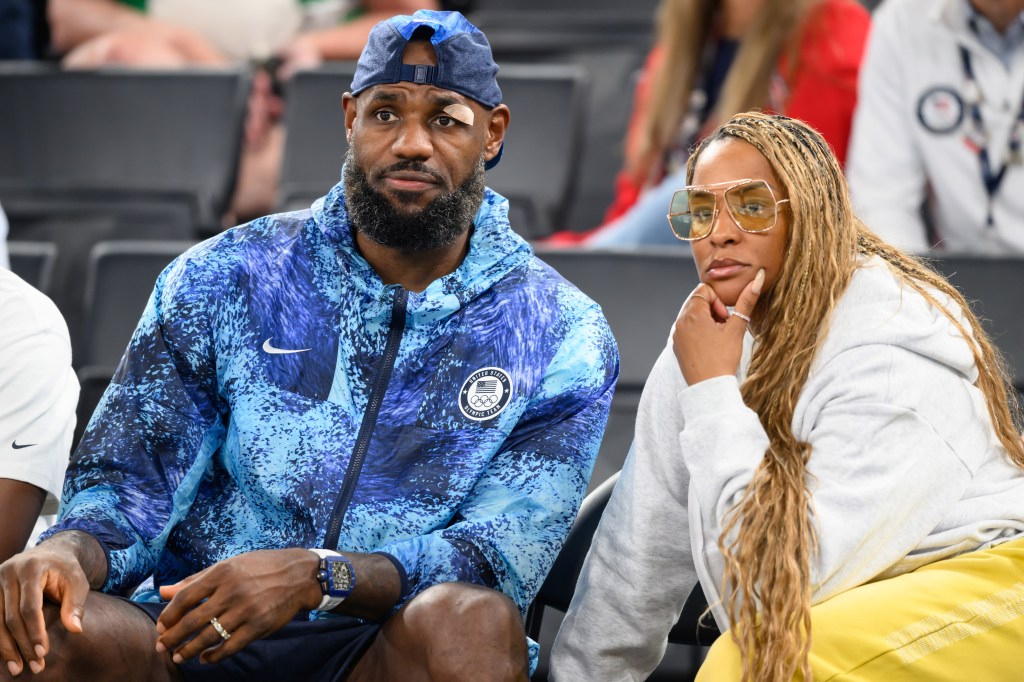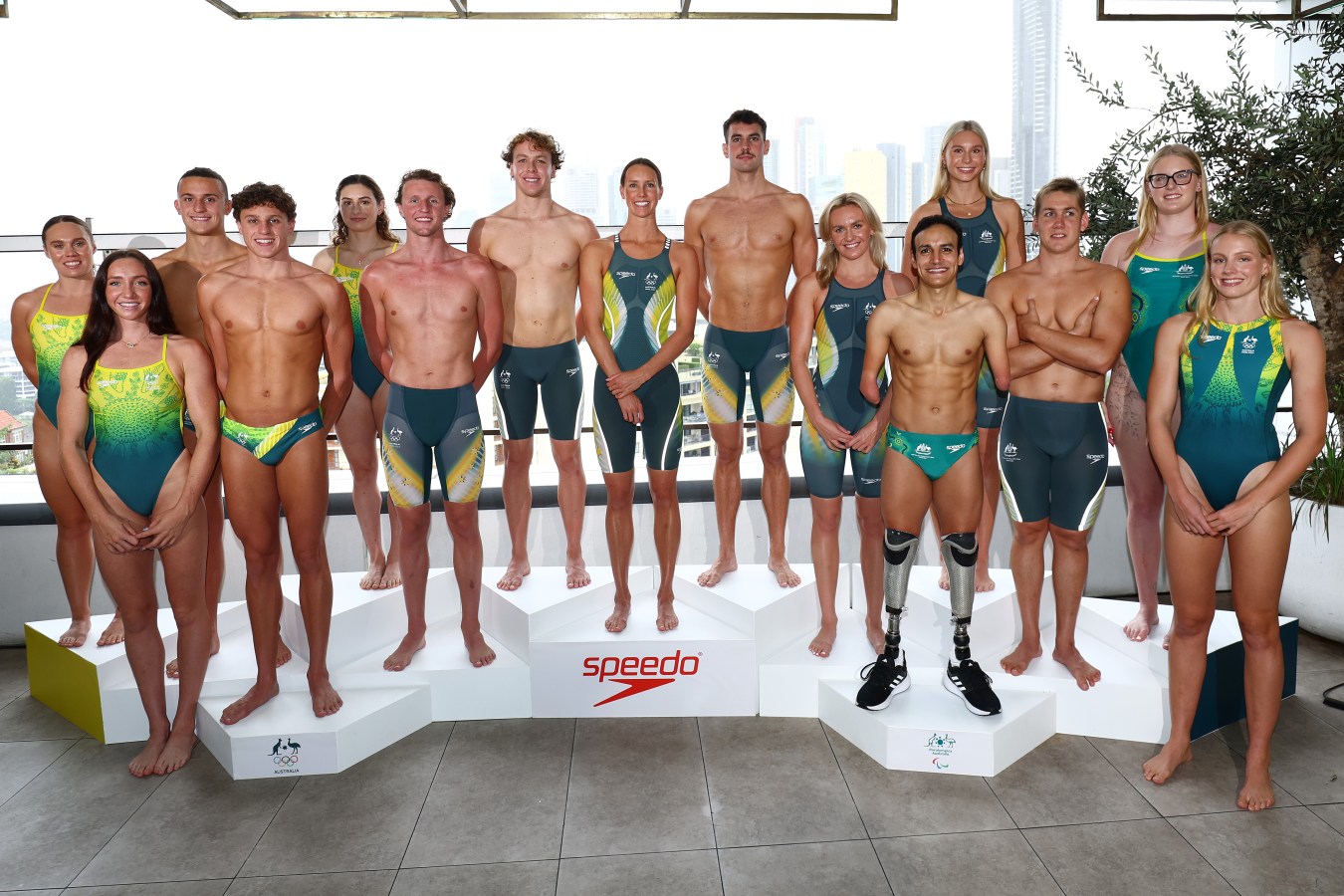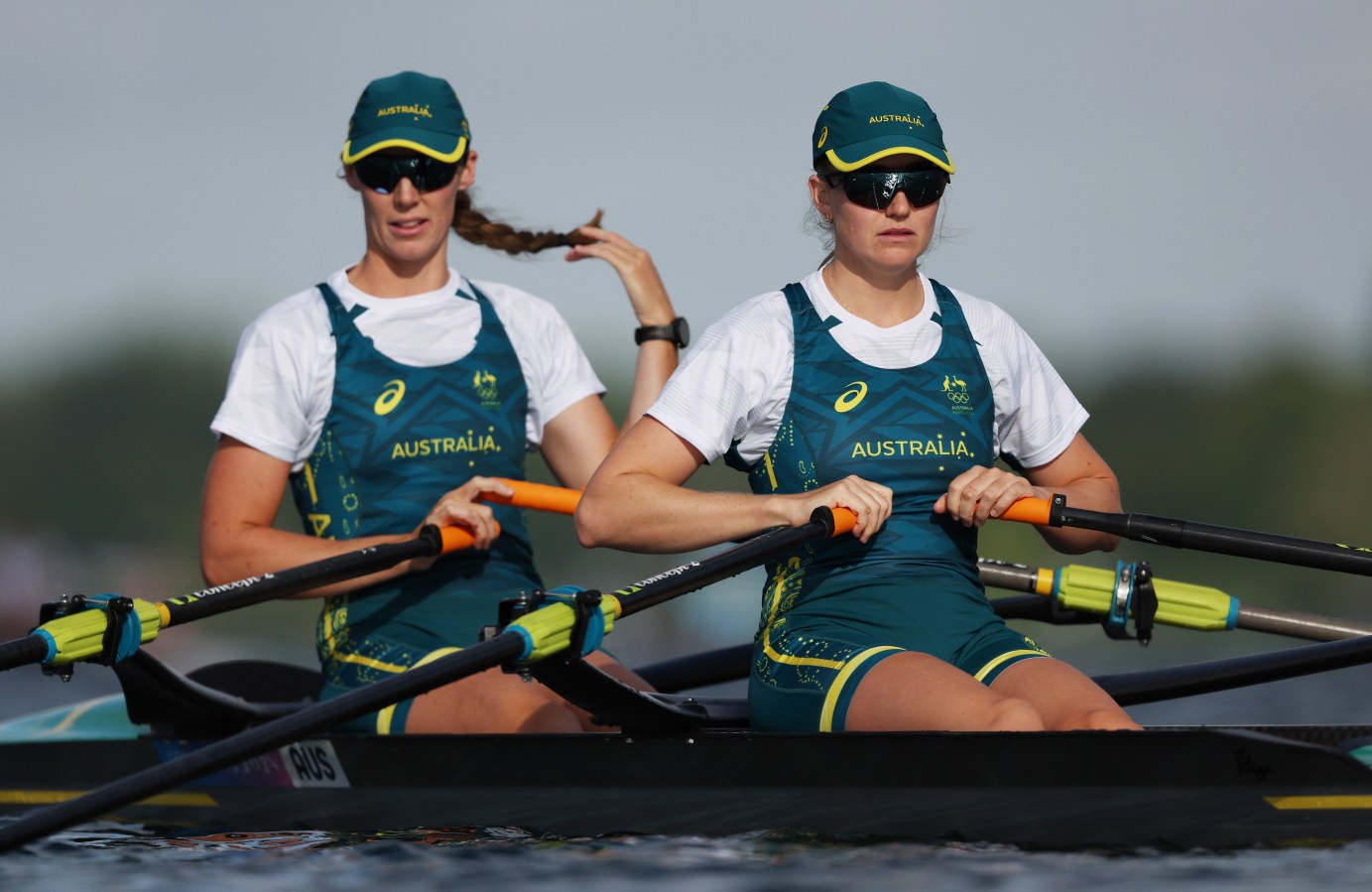For most American squads at the Games, lodging, transportation and security might run $400,000. But the Dream Team established a luxurious precedent 32 years ago.

Over the next two weeks, the Olympic Village in Paris’ suburbs will house more than 14,000 athletes—but LeBron James won’t be one of them. Neither will Stephen Curry, Breanna Stewart or any of the other men’s and women’s basketball players representing Team USA at the Paris Games.
It’s not just because this year’s cardboard beds can’t fit Joel Embiid’s 7-foot frame, or because the team has been concerned about the battle over air conditioning in France’s summer heat. USA Basketball has simply opted to make its own arrangements since 1992, when the NBA first allowed its players to participate in the Olympics and the Dream Team dominated the competition in Barcelona.
In most years, USA Basketball, the sport’s national governing body, has placed its athletes in luxury hotels outside the Olympic ecosystem, as it did at the Tokyo Summer Games in 2021, although the players’ accommodations at two previous Olympics, in Athens in 2004 and in Rio de Janeiro in 2016, were a bit more exotic, aboard docked cruise ships. But regardless of where exactly they stay—this year’s lucky hotel is being kept secret—putting up two dozen star players plus team staff and family members in roughly 700 rooms is never easy, nor is it cheap.
Between USA Basketball’s outlay and other resources provided by the U.S. Olympic & Paralympic Committee and the State Department, Forbes estimates it cost $15 million to send the American basketball squads to the Olympics, an astronomical figure compared with other sports. Phil Andrews, the CEO of USA Fencing and former CEO of USA Weightlifting, estimates that the cost of sending his 20 fencers to the Paris Olympics is between $300,000 and $400,000, including both his organization’s and the USOPC’s contributions. USA Weightlifting raised more than $300,000 through its “Tokyo Strong” campaign to cover its own expenditures for 2021, according to public financial statements, with the athletes staying outside the Olympic Village at the Prince Park Tower.
However, USA Basketball—which declined to comment for this article—has very different needs, and security is a major concern, considering the team traditionally includes some of the highest-profile athletes on the planet. During the 2008 Beijing Games, thousands of fans would routinely line up outside Team USA’s hotel to catch a glimpse of Kobe Bryant. “It’s a little bit overwhelming and a bit embarrassing to be honest with you,” Bryant told reporters 16 years ago. “I’m just trying to blend in and, you know, duck my head down because I just want to be part of the mix.”
This year’s roster features some of the sports world’s biggest stars both on and off the court. Collectively, the men’s national team pulled in more than $600 million over the past year before taxes and agents’ fees, led by LeBron James, who ranked No. 4 among the world’s 50 highest-paid athletes with $128.2 million in total earnings over the 12 months ending in May.
Related
Perhaps unsurprisingly, Novak Djokovic, who will compete in tennis for Serbia and is one of the few Olympians who can match the basketball players in star power and with his earnings potential, will reportedly stay outside the Village this year, just as Roger Federer and Serena Williams did in 2008.
The off-site advantages extend beyond security, though, with the teams able to exert more control over their scheduling, nutrition and visits from family members, who are barred from entering the Village. USA Basketball also gets more leeway with room assignments than it would have in the Village, where teammates become roommates. The goal, of course, is a distraction-free environment to focus on bringing home gold.
The booking process ultimately plays out over years, according to one former director at the USOPC. The Olympic committee will typically visit a future host city at least six years in advance and broadly plan out how housing, transportation, training camps and other factors could fit different teams. When the options are laid out, the USOPC issues an invitation for a site visit to USA Basketball, which makes the final call on the arrangements.
“You want to get it, if not done, at least some kind of memorandum of understanding or something before the previous Games ends,” the former director says. “What’s going to happen as soon as Paris is over, everybody is going to start looking at L.A.” for the 2028 Summer Games.
For Paris, USA Basketball rented out the entirety of a hotel in the city center with roughly 800 rooms, according to the former director, who was involved with the contract negotiations around 2019 and 2020. (The former director declined to share the exact location because of security concerns.) There’s a large traveling party to accommodate, including not only players but also their families, support staff members, executives and NBA personnel. But if it is left with extra rooms, USA Basketball can offer some to other sports. At the Tokyo Games, for example, the golfers stayed at the basketball team’s hotel.
The expenses don’t stop with lodging. Transporting players to practices and games and shipping team equipment to Paris need to be sorted. The USOPC contributes in certain areas, like providing access to a high-performance training center it built out in Paris and coach-class airfare for athletes. But upgrades, like flying via charter, fall on USA Basketball.
The NBA provides some security, as does the State Department. “It’s very much undercover,” the former director says. “It’s eyes and ears and coordinating with the locals just to make sure that everything’s fine.” The State Department covers its own expenses, and in some cases, the USOPC will supplement the effort with a local security agency.
All together, the cost of staying in the Olympic Village would amount to roughly 10% of the basketball teams’ spend for Paris, the former USOPC director estimates. USA Basketball can afford it, though. According to public disclosures, the organization—a nonprofit—has generated nearly $78 million in revenue over the last four fiscal years ending September 30. Roughly $38 million of that total comes from its licensing and marketing agreement with the NBA, with $15.5 million coming in 2021, the year of the previous Summer Games.
“The one good thing about basketball is they have a lot of resources between not only the national governing body but more importantly the NBA and the WNBA,” the former director says.
And the players will still have an opportunity to experience the atmosphere in the Village.
“We stay outside of it, but we get our time right before the opening ceremony,” Kevin Durant, competing at his fourth Olympics, recently told USA Today. “As we go to other sports as well, we get to walk through the village. So I think we get enough time there.”
This article was first published on forbes.com and all figures are in USD.
Are you – or is someone you know -creating the next Afterpay or Canva? Nominations are open for Forbes Australia’s first 30 under 30 list. Entries close midnight, July 31, 2024.
Look back on the week that was with hand-picked articles from Australia and around the world. Sign up to the Forbes Australia newsletter here or become a member here.



